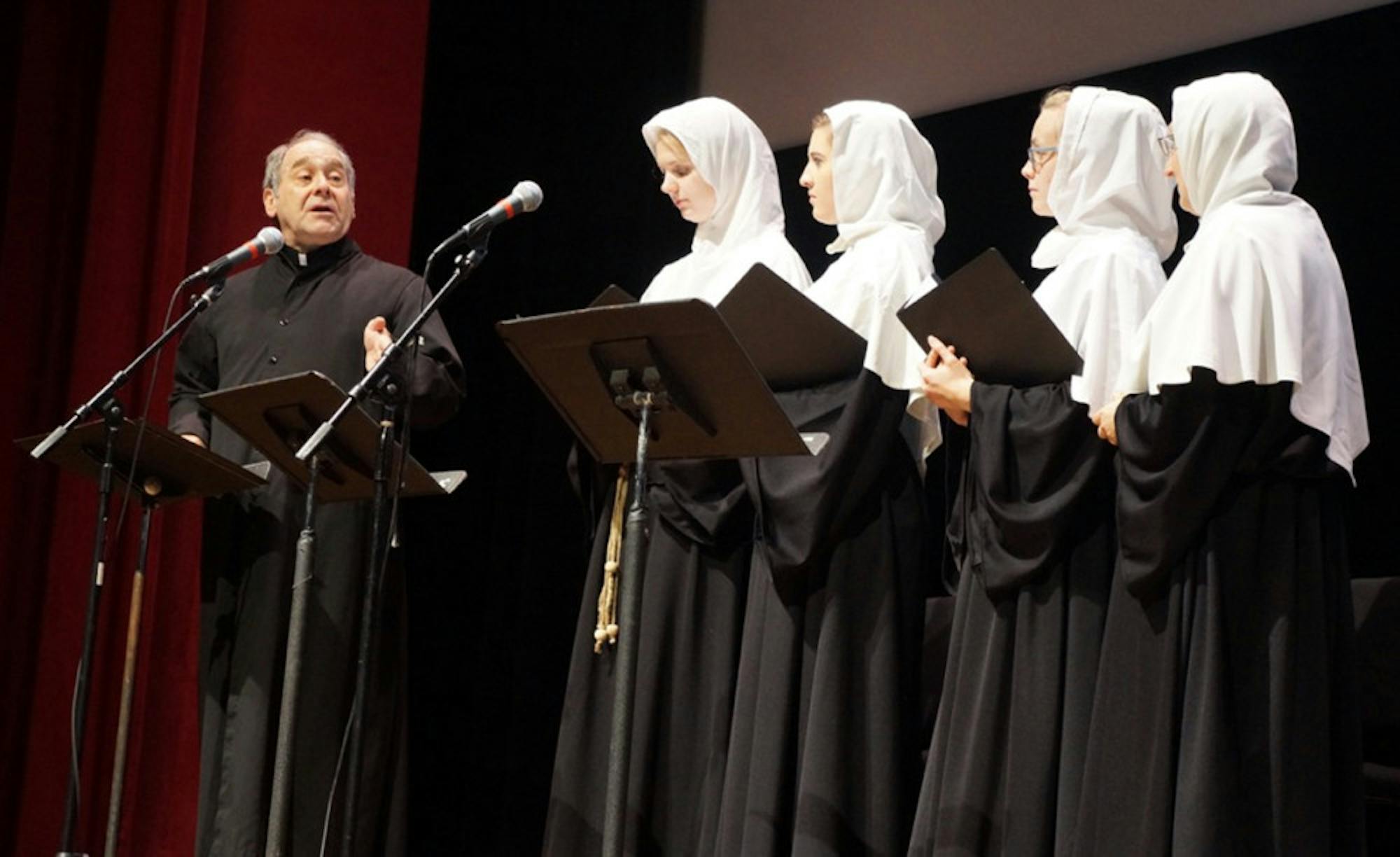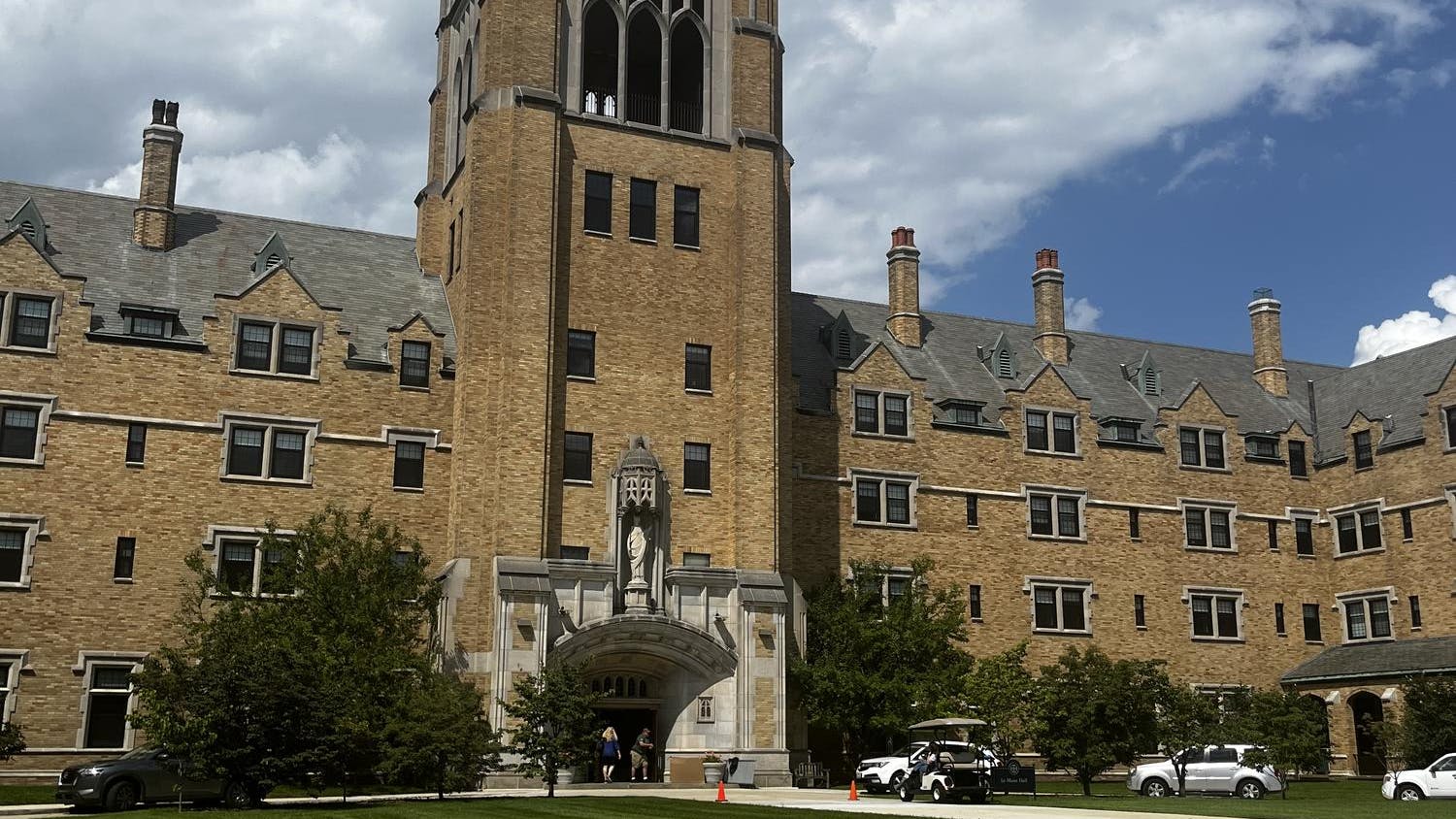Last night, first-year students at Saint Mary’s gathered together in O’Laughlin Auditorium to view the staged reading of “Like A Mighty Tree: A Short History of Formidable Women,” a play written and directed by Susan Baxter, senior lecturer of communication studies.
Baxter said she wrote “Like A Mighty Tree” after Susan Vanek, associate dean for advising, asked her if she would write a play about the history of the College and its early years.
Baxter said she received a faculty development grant from the Center for Academic Innovation to write the play. She said they reached out to alumnae and students to collect stories of Sr. Madeleva Wolff, the College’s president during the 60s.
“We got alumnae to write in about their memories about her, because a lot of her students and people that knew her were still alive. We got floods of wonderful memories,” Baxter said.
The play goes through various time periods, Baxter said. One section features Wolff in a fictitious scenario where she is at freshman convocation, meetings she used to have with first years to discuss various subjects.
Baxter said other parts of the play follow the struggles of the original four sisters of the Holy Cross and the struggles of the Holy Cross founders, including Fr. Moreau’s commissioning the first four sisters of the Holy Cross, the founding of Saint Mary’s in 1844, moving the campus back and forth between South Bend and Bertrand and Mother Angela’s serving in the Civil War.
Baxter said she only used secondary sources, not primary sources, because there was so much information to include in the historical play.
“I didn’t even get to college archives. … The challenge in writing it was not to find enough; the challenge was, ‘What do I leave out?’ Because there’s so many amazing things that these sisters who founded Saint Mary’s did,” she said.
Baxter said each year, first-year students are asked, “Why are you here?” She said she hoped the play would help students be able to answer that question.
“As I began to take these stories apart, Sister Madeleva’s included, I think before you answer that question you have to know what ‘here’ is,” Baxter said. “What is this place?’ It is not just another college. There is a pervasive spirituality here that’s sometimes challenging and sometimes quite liberal in its thought, and I don’t mean that in a political way I mean by constantly asking questions.
“So that’s what I am hoping first years will understand about this place, it is unique,” she said. “… iIt isn’t like some of these other places that you can more easily put your finger on where you are. There’s a heritage here that affects the future.”
At the end of the play there is a litany of some of the hundreds of places the Sisters of the Holy Cross established around the world over the years, Baxter said.
“Fr. Moreau says, ‘Holy Cross will grow like a mighty tree,’ and there’s this three-branched tree and as each apostolate is read, a branch has to grow on the tree for it to spread out,” she said.
Baxter said the heroic sisters she described in her play not as the exception for the Sisters of the Holy Cross, but rather the norm.
“As incredible as I think these stories are, I can’t wait to see what [the Sisters of the Holy Cross] do next,” she said. “I think that these extraordinary people as they come in and out of the Saint Mary’s realm, we don’t notice that until their legacies are put together. I’m not sure people knew how extraordinary Sr. Madeleva was, or Mother Angela, until all the stories come together.”













